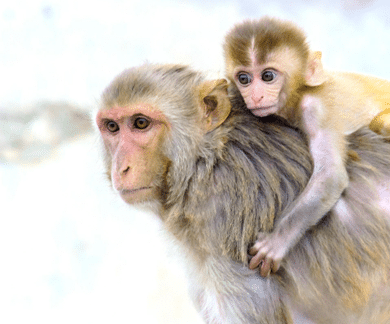Until recently, there has been a gap in information about the temporal changes of the gut microbiome associated with malaria infection.
To fill that gap, a recent study– where shotgun sequences were analyzed by the CosmosID-HUB Microbiome Platform – used 16S rRNA and shotgun sequencing to analyze the rectal samples from experimentally malaria-infected macaques over time.
Read on to learn more about the study and its results.
Background
Malaria, which is caused by Plasmodium infection, still stands as a major global health challenge – with over 200 million malaria cases and 600,000 casualties per year.
The malarial parasites have co-evolved with their human hosts for thousands of years, resulting in a range of symptoms from subclinical and asymptomatic to severe.
Malarial infections may result in deviation from host immune homeostasis, which can directly or indirectly impact the host microbiome composition.
Consequently, the tripartite interplay of host immunity, malarial parasites and host microbiome may influence the etiology of malaria.
Previous studies
This interplay between microbiome and host is documented in mammalian models, such as mice. In the murine model, antibody induction of E. coli O86:B7 has a cytotoxic impact on Plasmodium and protects mice from mosquito-transmitted Plasmodium infection.
In another mouse study, a reduction in the Firmicutes/Bacteroidetes ratio and Proteobacteria abundance in the guts of the mice caused decreased resistance to intestinal colonization of non-typhoidal Salmonella, another concurrent malaria parasite.
On one hand, the host microbiome may protect against malaria progression. On the other hand, increased intestinal permeability to the Plasmodium infection may result in microbiome disruption.
Moreover, Plasmodium infection could cause tryptophan to decrease. The breakdown of this amino acid results in kynurenine, a powerful immunoregulator.
What does the latest research say?
To fill the gap in the literature, the research group experimentally infected Rhesus macaques with Plasmodium. Then, they collected rectal swabs from which DNA was extracted and then prepared for 16S rRNA and shotgun sequencing.
The bioinformatics analysis of shotgun whole-genome sequencing data by the CosmosID-HUB Microbiome Platform illustrated this:
“Helicobacteraceae from Proteobacteria dramatically increased in relative abundance at the peak of the infection, while Lactobacillaceae and Ruminococcaceae, Prevotellaceae and Spirochaetes decreased in relative abundance.“
Alpha diversity analysis revealed decreased alpha diversity at the climax of parasite infection. Functional analysis of data presented changes in the tryptophan-kynurenine immunomodulatory pathway that was also previously described in malarial infections of humans.
Altogether, the results suggest that a metabolomic shift correlates with a microbiome shift at the peak of the malaria infection. To learn more, please read the original paper.
How did CosmosID support this research?
The CosmosID-HUB Microbiome Platform enabled the analysis of both shotgun and 16S rRNA amplicon sequencing data.
CosmosID-HUB’s intuitive interface, the rapid turnaround time for data generation, and a variety of ways to visualize microbiome data allowed the research group to quickly explore and interpret changes in the gut microbiome induced by malaria infection in macaques.
This study highlights one example of how CosmosID-HUB’s easy-to-use and comprehensive platform can support a variety of research projects – from identifying microbial species to uncovering functional changes in the microbiome.
Discover the benefits of using CosmosID for your research…
Looking for a leading microbiome platform to analyze your microbiome data? CosmosID-HUB’s comprehensive, accurate and secure platform offers an easy way to gain actionable insight into the microbial composition of any sample.
CosmosID-HUB supports a variety of research projects, from drug discovery and clinical diagnostics to environmental testing, food safety, and much more. Our platform enables users to store, analyze and visualize data with confidence.
So, what are you waiting for? Enquire today about our Microbiome Sequencing Services.



